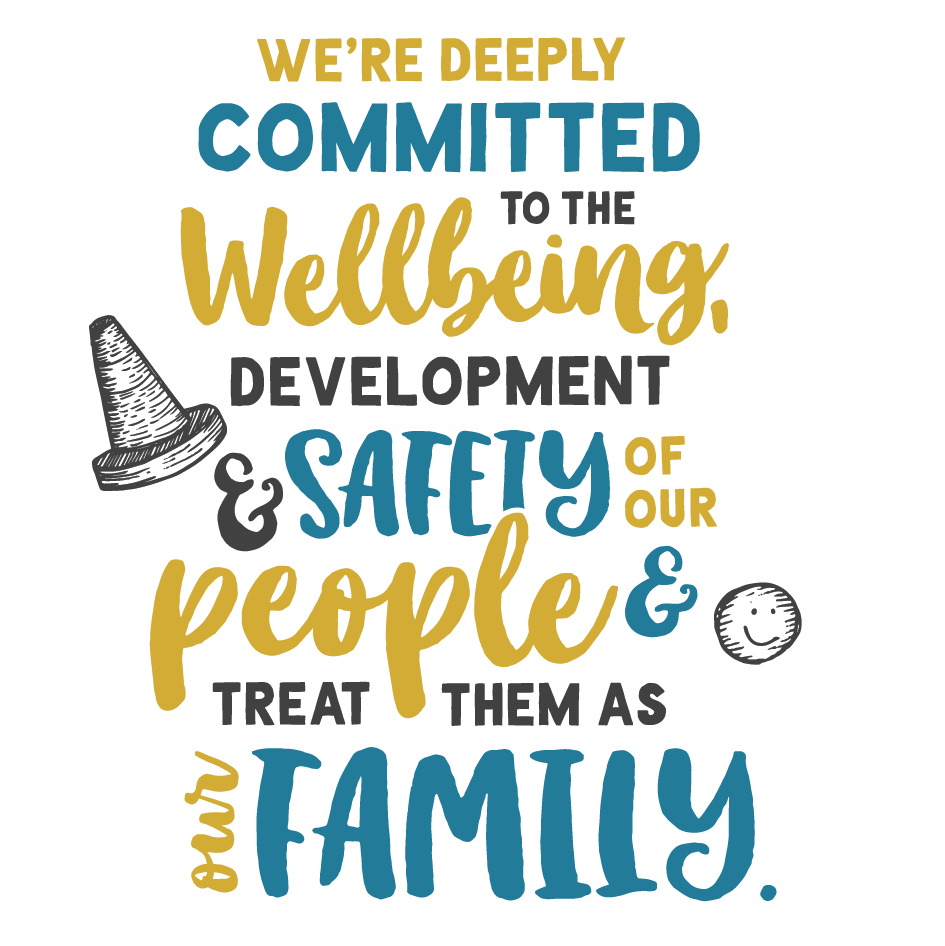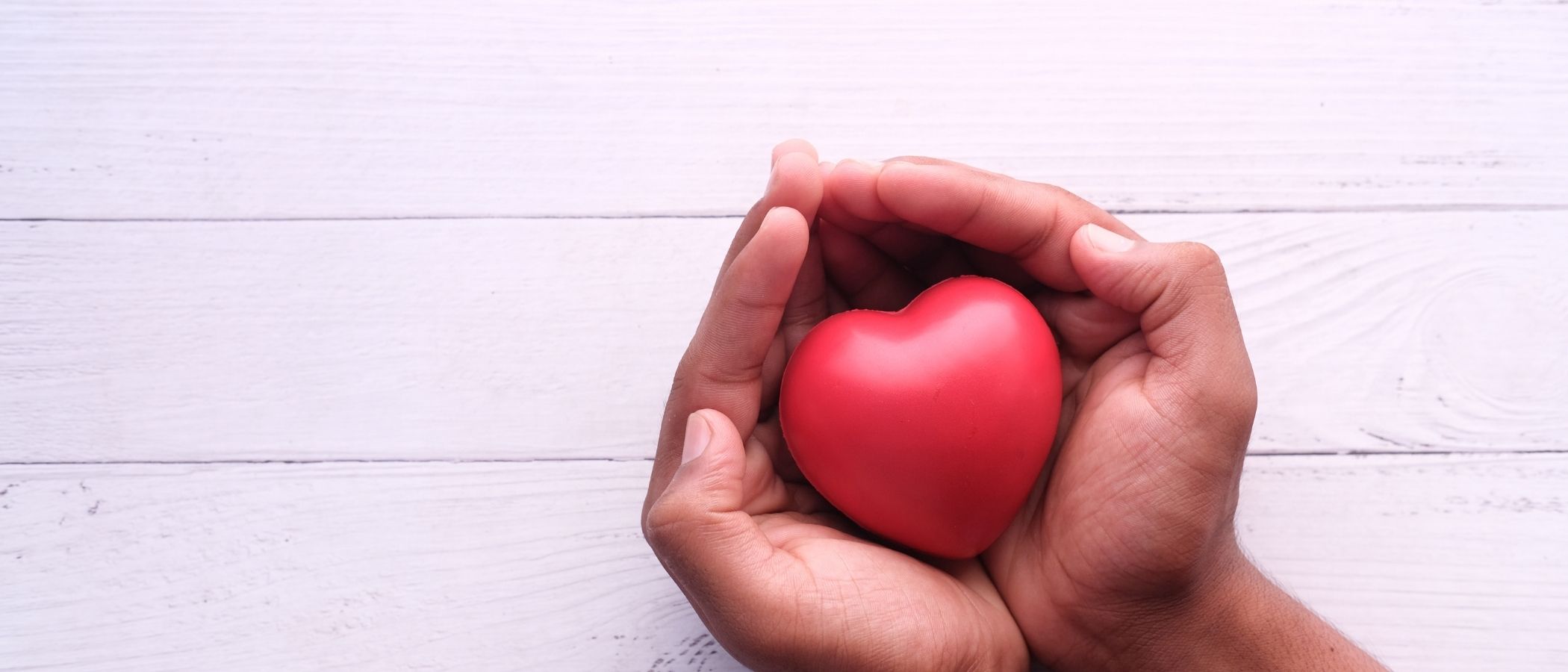

What is domestic and Family Violence?
Domestic and Family Violence is a complex and confronting topic. It means acts of physical violence, control, verbal abuse and intimidation. Essentially, Domestic and Family violence is a lack of respect for the other person.
Domestic violence may happen between partners in an intimate relationship. It may also happen between housemates, or between parents.
We understand that some of our team may be affected, either through their relationship experience or by growing up with Domestic and Family violence in their household. If you have been impacted and need help, we are here to support you.
More about Domestic & Family Violence
Types of Domestic & Family abuse
Domestic and Family violence can include the following types of abuse, including both physical and non-non-physical acts:
• Emotional abuse – controlling someone’s feelings and causing angst or mental trauma
• Physical abuse – causing physical pain or injury to a person
• Financial abuse – withholding someone’s access to money or controlling the way they spend their money
• Social isolation – cutting someone off from their family and or social circle
• Sexual abuse – unwanted sexual activity, perpetrated by force, the use of threats or a lack of consent.
• Psychological abuse – the use of tactics to control someone’s way of thinking.
• Spiritual abuse – preventing someone from following a spiritual practice or coercing them to follow one
• Identity-based abuse – abuse based upon someone’s race, gender, sexuality, age or other identity factors
• Coercive control – an act or a pattern of assault, threats, humiliation and intimidation or other abuse that is used to harm, punish, or frighten their victim
• Verbal abuse – name-calling, threats, insults or verbal intimidation
• Technology-based abuse – controlling behaviour by using technology to coerce, stalk or harass another person
Domestic & Family Violence does not discriminate
Domestic and Family Violence is a significant issue in Australia, impacting both women and men, but significantly more women. It affects approximately 1 in 4 women and one in 16 men.
Domestic and Family Violence can happen to anyone, regardless of where they live, their profession, their education or their age.
Those particularly vulnerable include:
-
- indigenous women
- people living outside major cities
- young women aged 18-34 years old
- people with a disability
- the LGBTI+ community
What are the impacts of Domestic & Family Violence?
-
- physical injury (in extreme cases, victims lose their lives)
- a loss of confidence
- reduced connection to family and friends
- financial issues
- damage to their career
- loss of their home
- interrupted/changes to time with their children
These impacts can exist for a long time, in some cases for years after a person leaves the situation. It is therefore important that we better understand Domestic and Family Violence to provide empathy and support for those who are impacted.
What are the warning signs?
There are several warning signs that may indicate someone is impacted by Domestic and Family Violence.
Domestic and Family Violence is complex, and these warning signs are not definite. Someone may exhibit warning signs and not be impacted by Domestic and Family Violence. And someone may be impacted by Domestic and Family Violence but not exhibit these warning signs.
However, here are some common warning signs that a person may be impacted by Domestic and Family Violence:
-
- Changes to their attendance – arriving late, leaving early, unexplained absence, working longer hours, short notice for time off
- Reduced outputs or quality of work
- Visible changes – bruises or injuries, using makeup or covering up with scarves
- Behavioural changes – drugs and alcohol, poor sleep, different mood, isolation from colleagues
- Being guarded or worried when discussing home life
- Frequent interruptions or harassment at work
- Signs of mental health issues – anxiety, depression
- Isolation from family and friends
- Impaired access to finances
If you suspect someone is impacted by Domestic and Family Violence, please contact HR Enquiries on 07 3352 0810.
What are the warning signs of someone using Domestic & Family Violence?
Whilst we are sharing the warning signs that someone may be using violence, we do not ask or recommend that you approach them on this topic. Please call 1800 RESPECT (1800 737 732), the National Sexual Assault, Domestic Family Violence Counselling Service. You can also find the service you need here.
Alternatively, please reach out to HR Enquiries on 07 3352 0800.
And like someone who may be impacted by Domestic and Family Violence, these warning signs are not definite. Someone may show warning signs and not be using violence. And someone may be using violence Domestic and Family Violence but not exhibit these warning signs.
However, these are common signs of a person who is using violence:
-
- Changes to work attendance
- Reduced work outputs and/or quality
- Spending time at work constantly texting or calling partner
- Has injuries but explanations don’t align
- Bullying behaviour towards colleagues
- Talking negatively, behaving with disrespect or acting with violence towards the victim
- Not taking responsibility for their violence or minimising their actions
- Jealousy and possessiveness
- Lack of support for gender equality
What do these terms mean?
Abuse: to insult, hurt, injure, rape and/or molest another person. This may include physical abuse, emotional abuse, financial abuse, spiritual abuse and/or verbal abuse.
Person impacted by domestic violence: a person who is affected by violence or children who witness domestic violence
A person using violence: a person who uses abusive behaviours to exert power and control over another person.
Coercion: when one person attempts or forces another to think or act in a different way.
Domestic and Family Violence (DFV): a pattern of coercive behaviours, used by an abuser to gain or maintain power and control over or harm another person with whom they are having an intimate or family relationship.
Domestic and Family Violence Service Provider or specialist support service: an organisation that provides support, counselling and practical assistance to victims of Domestic and Family Violence.
Safety Plan: a plan, verbal or written, a victim of Domestic and Family Violence creates (either alone or with an advocate) with action steps to keep her and any impacted children safe when violence takes place or to prevent violence from happening.
Sexual Assault: any unwanted sexual activity forced on one person by another.
How can Collins Foods help?
Paid leave
15 days paid and 10 days of unpaid Domestic and Family Violence leave, in a 12-month period (pro-rata for part-time and casual employees). This can be used to relocate, attend appointments, or seek support from specialist services.
Financial Support
$5,000 one-off grant provided through Collins Family Fund. These funds can be used for day-to-day expenses, including groceries, rent or fuel. Applications can be made in the strictest confidence.
Counselling
Free and confidential support through EAP counselling.
Visit AccessEAP or contact them on 1800 818 728 or book an appointment online.
Further assistance
Learn more about help available in our Domestic & Family Violence policy or contact our HR team. If someone requests assistance, please suggest they contact HR to develop an approach to their specific situation.
Our Commitment
To support and educate the Collins Family team about Family and Domestic Violence.

What is family and domestic violence?

I am impacted by family and domestic violence

I am supporting someone who is affected by violence

I am a leader or manager wanting to learn more
People at the heart
If you need support in relation to Domestic and Family Violence, either for yourself or one of your team, please reach out to HR Enquiries.
Please refer to our Domestic and Family Violence policy or DFV Leader Guide for further information.

